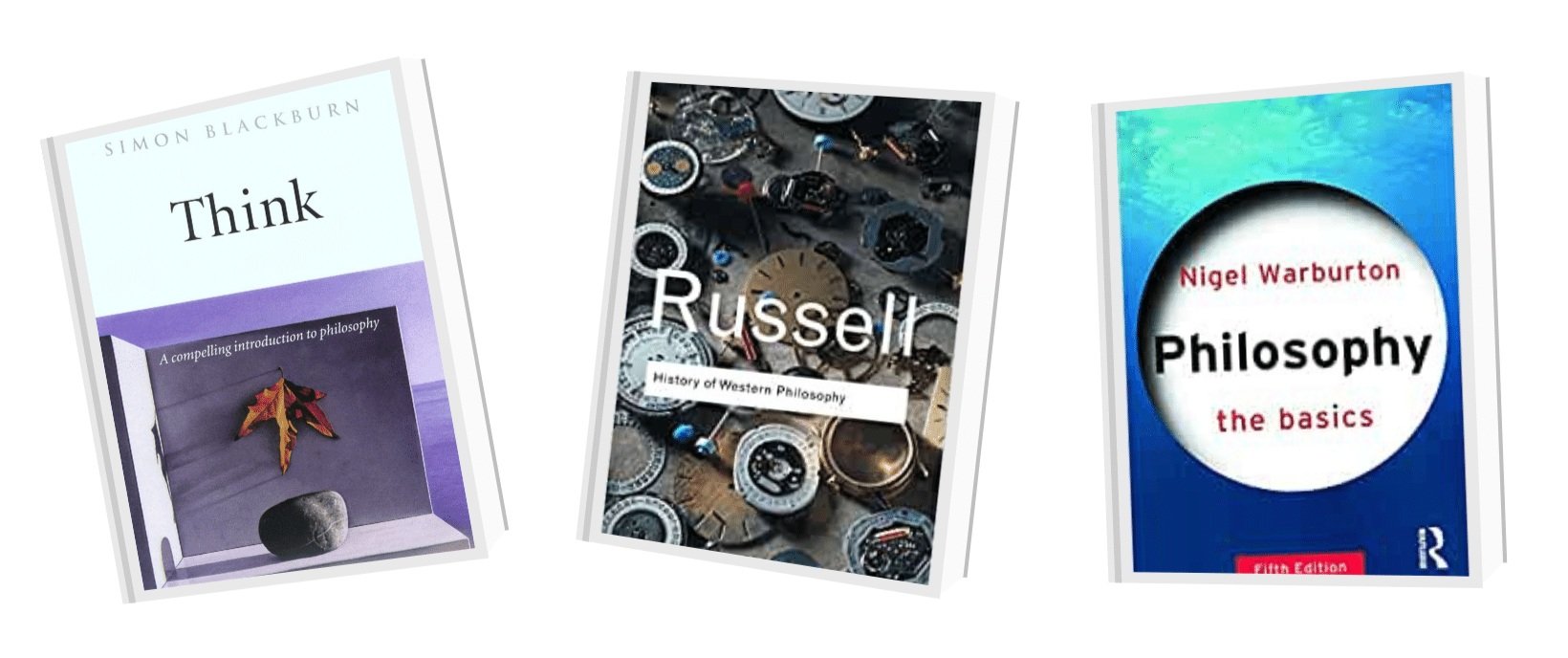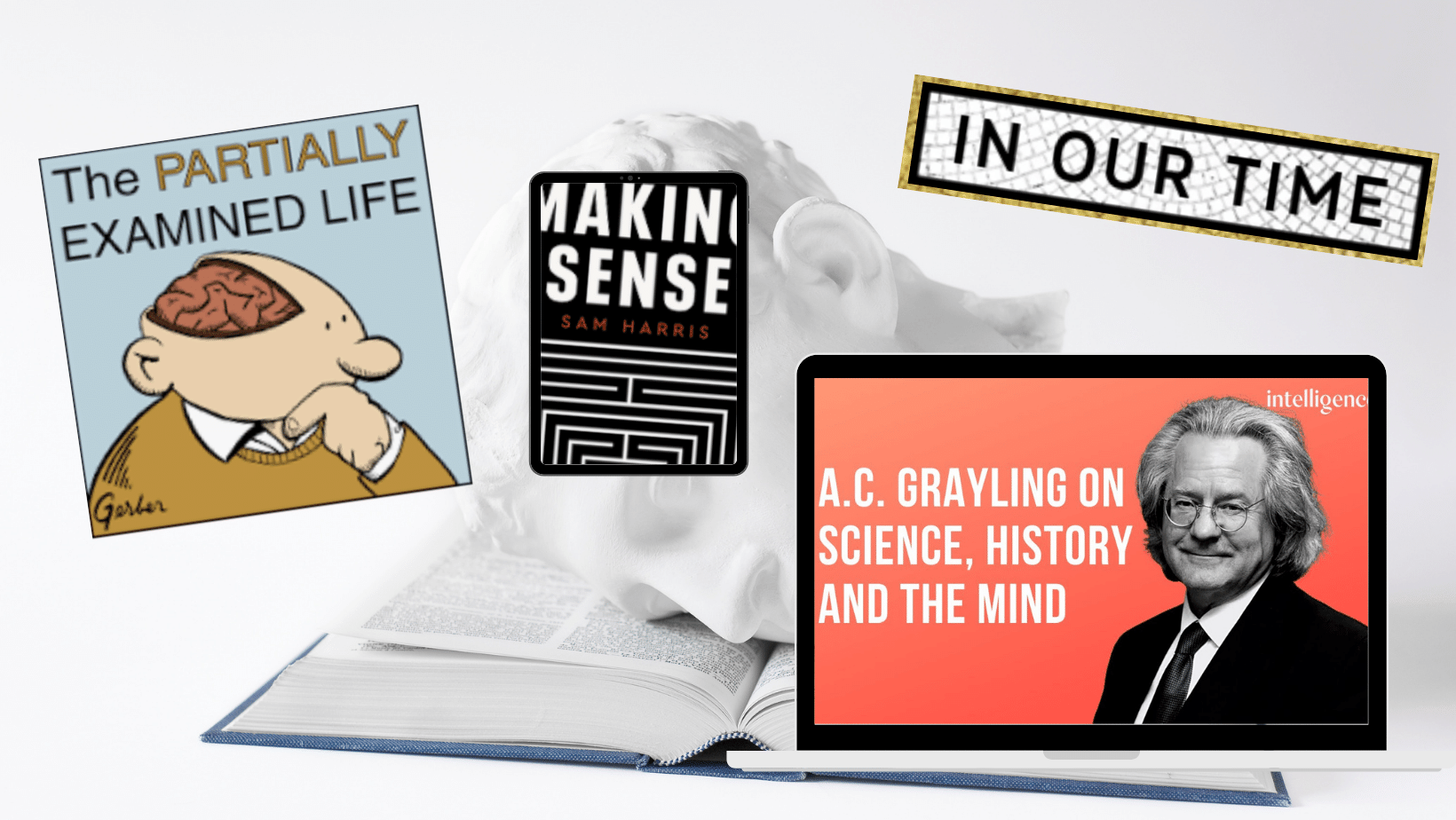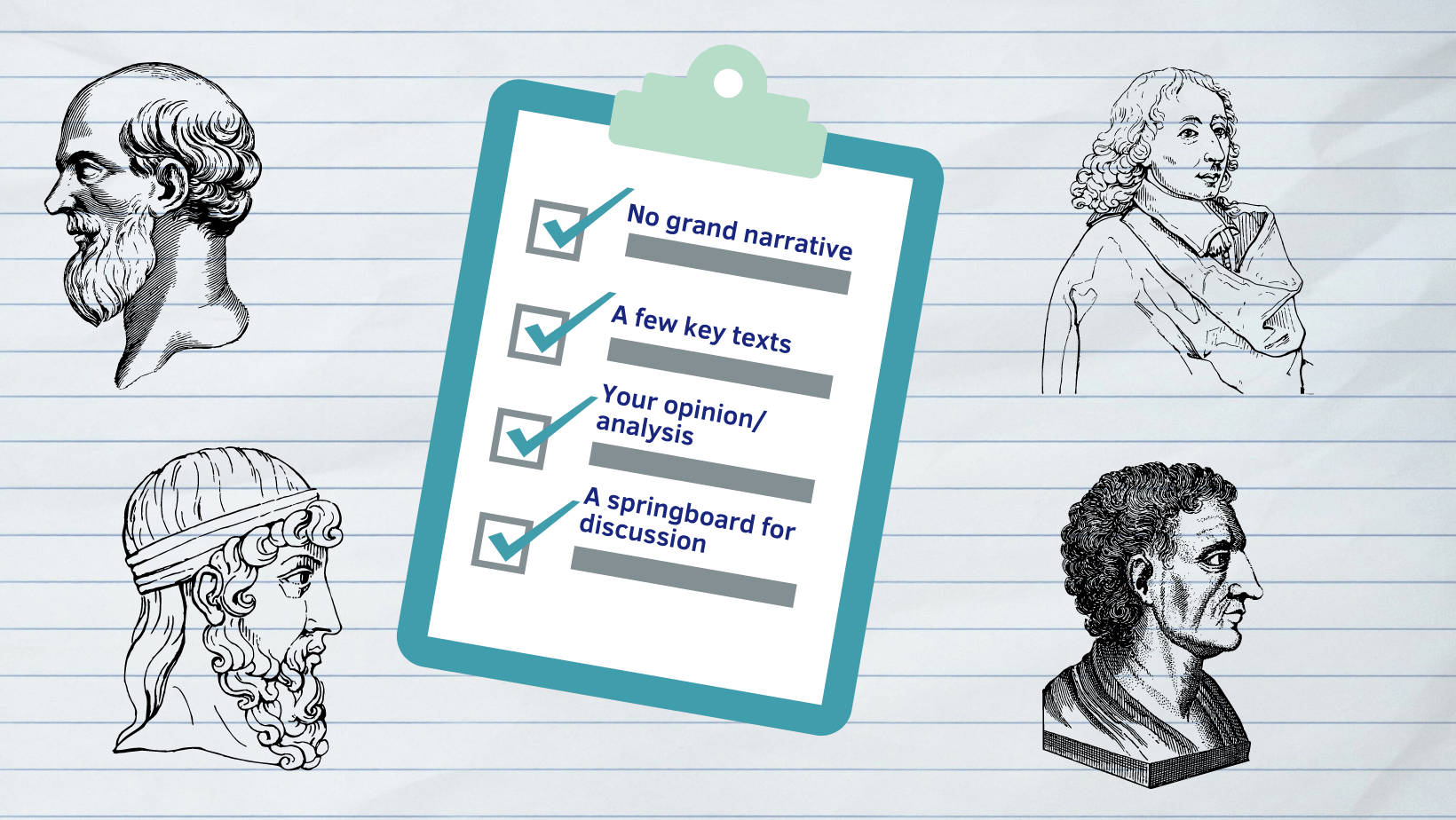Preparing for Philosophy at University: Reading, Personal Statement and Oxbridge Interview Questions
Philosophy University Applications
Philosophy is an absolutely fascinating subject to explore at university. It allows for the study of the evolution of human thought, the basis of knowledge and the theory that underpins our political structures. Its relevance is applicable to topical societal debates from the definition of gender, to what constitutes personhood, encouraging passionate discussion. Philosophy requires rigorous analytical thought that develops your ability to root out underlying assumptions and deconstruct arguments developing skills useful for many professions.
Reading Around Philosophy - How and Why
If you are aiming to apply for the best UK Universities such as Oxford and Cambridge, it is crucial that reading makes up a large portion of your preparation for the application process. Analysis of your reading should be incorporated throughout your philosophy personal statement, and be used as evidence in your potential Oxbridge philosophy interviews.
Top Tips:
Your philosophy personal statement should incorporate an engaging overview of your reading, and your thoughts and opinion on the texts. Make sure you don’t include an exhaustive list of texts without analysis (name-dropping), and on the other side, refrain from turning your personal statement into an essay on texts you have read. Keep some texts up your sleeve to bring up at interview (if applicable) rather than mentioning everything you have read in your personal statement
Make notes as you read of anything you find interesting as well as a summary of each book; this will help you to remember its contents and save you loads of time when you come writing your personal statement, preparing for interview etc.
Discuss your reading with a parent or friend; this can help you clarify what you thought of it and ensure that you can speak confidently about it
Philosophy Reading Suggestions - What to Read
The Cambridge Philosophy reading list is a great place to start. You could also try Peter Singer’s Practical Ethics and Volker Halbach’s The Logic Manual. Try working through the first few chapters of Halbach if you have the time as this will expose you to formal logic and would certainly impress an interviewer.
Other Recommended Reading for Philosophy
Classic Philosophy Texts
The classic text suggested is Simon Blackburn’s Think. It explores the central themes of philosophical study in an accessible format
A History of Western Philosophy by Bertrand Russell is a more academic text detailing the history of philosophical thought. It follows closely from the Oxford philosophy courses emphasis on the seminal philosophical texts
Philosophy: The Basics by Nigel Warburton is a good introduction to the subject for those that haven’t studied it previously. It should highlight what areas of philosophy might especially interest you
Other Interesting Books
Peter Singer’s Practical Ethics offers an accessible introduction to practical ethics which explores complex social problems from euthanasia to discrimination
Simone De Beauvoir The Second Sex considers human history through a feminist lens
Jean-Paul Sartre’s Existentialism and Humanism offers a short explanation of existentialist thought that offers a starting point for critical debate of modern philosophy
Bell Hooks: Ain’t I A Woman: Black Women and Feminism fascinatingly examines how prejudice operates at the intersection of race and sex for Black Women
Beyond the Library: Non-Text Preparation Suggestions for University Philosophy
Remember to look beyond the literary in your preparation! Your exploration into philosophy can take many forms – seek out videos, educational podcasts, lectures, essay competitions – anything that caters to your interests and specialities.
Events/ Talks
We recommend looking up talks in your area (or online) as they can be a hugely beneficial way of delving into subject areas beyond your syllabus and igniting your interests. In London, The New College of Humanities often hosts engaging talks by AC Grayling. Also check out Gresham College’s lectures.
Podcasts/YouTube Videos
AC Grayling - What We Now Know about Science, History and the Mind (Youtube)
Noam Chomsky – Cambridge Union Address (Youtube)
Watching debates on YouTube can be very helpful - try Sam Harris who also has a fantastic podcast. Aim to adopt his rational, logical style of arguing
Topical Issues in Philosophy
These are a few example key topics and debates philosophers are thinking about at the moment. Undertake your own research and try to add to the list!:
Feminist Philosophy – questions such as what is gender? Should surrogacy be treated as economic labour?
Artificial Intelligence – considers how AI effects our conceptions of knowledge, consciousness and free will
Euthanasia – practical ethics incorporates moral discussion around euthanasia
Some Philosophers You Might Want to Be Aware Of
Descartes – heralded as the first modern philosopher, his theory of metaphysics is essential to the study of philosophy
John Stuart Mill – developed the ethical theory of Utilitarianism and contributed significantly to political theory
Immanuel Kant – his works span epistemology, ethics and metaphysics. Modern philosophy is sometimes referred to as Post-Kantian revealing how expansive his influence has been
What to Include in Your Philosophy Personal Statement
The personal statement is just one of the many things that universities look at, alongside all the other elements of your application profile. A great personal statement won’t get you in, but a bad one can certainly count you out. It is important to give the tutors a springboard into conversation at interview if applying for Oxbridge.
Style:
Write in simple, straightforward, everyday English. Express yourself as succinctly as possible using short sentences. Do not get weighed down in jargon or complicated terminology – us it properly if you do
Content:
We recommend ~500 words, 3/4 paragraphs and 1 very short paragraph on extracurriculars at the end, mostly relating to the course. The function of this paragraph is to show that you are a real person with interests outside academia. It is not a factor in their assessment of you as a prospective applicant. Use it as an opportunity to add colour to you as an individual, rather than to brag about getting sports colours or being a prefect; make it quirky, interesting and unique
In the subject paragraphs, do not try to tell any form of grand narrative about either you or the subject e.g. “the first moment I realised I wanted to study Philosophy was” or even “Philosophy is the most important subject because”; these come across as pompous and insincere
It is a common misconception that you need to include lots of books in your personal statement: only include them if you have read them and the specific thing mentioned is highly relevant to your point, or it had a large bearing on your interest in the subject. It is much better to simply write about the ideas, concepts and theories that have captured your attention through your work at school and how you’ve explored them in your own reading
Ensure that you offer your own opinion on the things you’ve read. If you disagree with a philosopher then say so, but remember: the tutor might have spent his/her entire career studying that particular philosopher and might think she is the best thing since sliced bread so support your disagreement rationally and be prepared to justify in more detail at interview
What is an Oxbridge Philosophy interview like?
This is often regarded as the most daunting element of the whole Oxbridge admissions process, but if approached in the right way this can be a (relatively) stress free and even possibly enjoyable experience(!) Interviews may include discussion of:
Your application (personal statement, any submitted work). You might be asked to expand on things mentioned in your personal statement, so make sure you feel comfortable talking about everything you’ve said in more depth
A recent book you have enjoyed
Topical issues in philosophy
Hypothetical scenarios: One Oxford Philosophy applicant (Applying for PPE), was asked to discuss the possibility of a machine thinking - the tutors tried to think of scenarios where the student’s views were inconsistent and probe into their reasoning process
Logical problems: You may be given a logical problem to consider to examine the process of your thinking. How did you get to your answer? What assumptions have you made? Where might there be ambiguities?
Ethical questions e.g. If we had an obligation not to kill animals, would we also have an obligation to intervene to prevent a predator attacking its prey?
Abstract/ theoretical questions e.g. “Why do we care about you having a stable identity that continues over time?”
Thought experiments
Questions on a passage from a text
This list is not exhaustive – every interview is different, and may include a myriad of different formats of question.
A Few Example Oxbridge Philosophy Interview Questions to Practice
If you lost a leg, would you be the same person?
To what extent are you determined by your DNA, your upbringing, your cultural norms?
‘It may be bad taste to commit genocide in a computer game, but it is no more wrong than it would be right to alleviate world poverty in a computer game.’ Do you agree?
How you prepare is entirely up to you – all you can do is explore, read, and practise verbalising responses to example questions as much as possible in the lead-up! Find things you enjoy, demonstrate your enthusiasm and genuine interest in the subject at interview, and you’ll be on the right track for success.
By Elspeth (U2 Philosophy and Theology Tutor - Trinity College, Oxford Graduate)
Are You Applying For Philosophy as a Single Honours or Joint Honours Course at Oxbridge?
Oxbridge Philosophy Tutoring
U2 offers ad hoc sessions as well as wider Oxbridge Mentoring programmes (book a free consultation to discuss options). We have a great team of Oxbridge-educated Philosophy tutors including 1st Class, Master’s and PhD level graduates.
The Process:
1) We suggest a Philosophy graduate as a tutor and send their full CV for review. Our tutors are deeply familiar with the admissions process to study Philosophy at the University of Oxford and Cambridge, and are well-placed to guide you through personal statement curation, the entrance exam (if applicable) and interview process. We have tutors from the straight Cambridge Philosophy course, as well as Joint Honours tutors in French and Philosophy, PPE, PPL etc.
2) We typically suggest beginning with a 1.5 hour informal assessment/ taster session, where the tutor will informally assess the student’s current performance level at for application, including test and interview. Following this, we issue a report with feedback, and structure a plan to best prepare.
3) U2’s approach for regular Philosophy application sessions: The main focus of tutorial sessions will be to explore material that can be discussed in the personal statement and at interview. Tutors ensure each student refines their interests within Philosophy, and is exposed to a range of approaches and new concepts, guiding students in their reading and wider subject exploration. Together, we build a case for the student, exploring their special interests in the subject and honing skills for the admissions test if applicable.
Frequency of sessions can be decided between student and tutor. Students can take either ad hoc sessions, or we structure a full programme for preparation, which may include further co-curricular opportunities such as our research projects, our Philosophy Summer School and Oxbridge mock interview days. Oxbridge tutoring presents a wonderful opportunity to learn from and be inspired by some extraordinary academic minds. We would be delighted to support you through what can be a challenging, but hugely rewarding process.
Sessions from £75/h.




